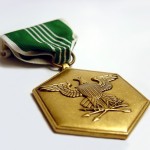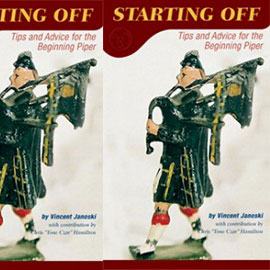Hacking Bagpipe Competitions: Idea 1—The Event Team Model
 Highland games and cultural festivals in general sit on a financial precipice. They serve an extremely narrow subset of the public in spite of every effort to make them more generally appealing. And as hard as they try, these games have an annual challenge to draw the crowds needed to sustain themselves. One or two rainy years and these games are suddenly faced with the prospect of shutting down completely. Add to this already stress-inducing burden spending money on a bagpiping competition for soloists and bands all imposed by the governing policy of the EUSPBA, and the games suddenly have one more boulder to roll up hill.
Highland games and cultural festivals in general sit on a financial precipice. They serve an extremely narrow subset of the public in spite of every effort to make them more generally appealing. And as hard as they try, these games have an annual challenge to draw the crowds needed to sustain themselves. One or two rainy years and these games are suddenly faced with the prospect of shutting down completely. Add to this already stress-inducing burden spending money on a bagpiping competition for soloists and bands all imposed by the governing policy of the EUSPBA, and the games suddenly have one more boulder to roll up hill.
The EUSPBA is in a position to provide quite a bit more than just advice to back up the imposition it places on Highland games. Anything beyond that advice is naturally going to take the form of some sort of funding or spending. In lieu of any other brainstorming for solutions, we’ll tackle the subject here at Pipehacker with ideas that are hopefully actionable and concrete. Here is Idea 1 for hacking bagpipe competitions: The Event Team.
The Event Team
Bagpipe competitions are hectic ordeals for their organizers. Like any large and largely nonprofit endeavor, these undertakings rely on a team of dedicated volunteers whose enthusiasm drives the quality of the event. As stated in my earlier post, the EUSPBA provides nothing save advice and expertise to the games who then are required to go about spending loads of time and money to conduct an event that hopefully lives up to EUSPBA and competitor expectations. The EUSPBA already provides training for games “monitors” who ensure that a competition is run in accordance with EUSPBA rules and guidelines. There has also been the occasional steward training that teaches volunteers how to execute the events of the day to ensure a smooth and pleasant experience. But, let’s state the obvious: The 800 lb. gorilla that everyone ignores is saying that bagpipers and drummers are the ones best suited to run a bagpiping and drumming competition. Why not throw more weight behind that very idea and instead provide a paid, trained team to organize, manage, and execute the event?
Historically, the EUSPBA has eschewed the model adopted by other large piping and drumming organizations here in North America, where the competitions are funded and administered by the parent organization. In what is really the flip-side of the current eastern US model, Highland games in Canada provide nothing to bagpipe competitions save the outdoor venue. The organization provides the rest.
An EUSPBA Event Team model dips into that Canadian model and provides personnel to alleviate some of the games’ organizational burden while not really changing the current financing model at all. What is changed is an allocation of resources on the Highland games end of things. Bagpiping competitions no longer become a logistical and organizational burden leaving organizers to devote more precious time toward the festival itself and attracting a ticket-buying crowd.
Since the EUSPBA is accountable to the membership, the team would thus be accountable for its performance to that same membership. Expectations are taken from the shoulders of games organizers and placed on those with more accountability for the quality of the event. The team model would also provide confidence that the competition will be run closer to the wishes and desires of competitors thus perhaps attracting more entrants to the games who are the beneficiaries of the team. Who would be the beneficiaries? That is where it gets trickier.
Granted, the EUSPBA is a geographically diverse association with regional competition activity that would obviously call for regional teams. The list of sanctioned games is also too numerous to devote effective teams to each and every one. The decision to deploy the team could be triggered by any number of things. It could be triggered by the average number of competitors who currently attend the event. Larger events might merit the full team, while smaller events might merit a smaller team or no team, providing an incentive for the event itself to grow to a size that would then trigger use of the team. The option could also be reversed, with the smallest events granted use of the full team and the larger events not requiring the team at all. A balance is possible.
Can the team be funded purely using EUSBPA dues income? Funding the team is could be a sticky wicket and would require some hard numer crunching. But it is not an impossible hurdle. Entry fees are a pittance compared to the overall costs of a typical bagpipe competition but those fees could be redirected to be paid directly to the EUSBPA to further support the paid team. One hundred competitors at $25 each for a single competition is a decent sum that could be used to make the team idea more feasible.
The Event Team is one idea that invests in the longevity of our craft by helping the Highland games and festivals that are at the foundation of what we do as bagpipers and drummers. With the right minds behind it, it could play an important role in the future of our musical efforts.
-
Eric O
-
Pipehacker
-
-
Kevin W
-
Pipehacker
-
 Pipehacker
Pipehacker








